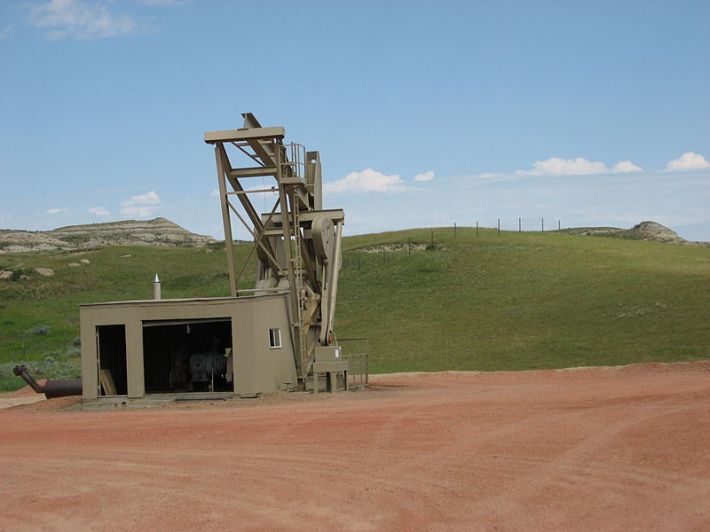What if peak oil doesn't take care of gas-guzzling by cutting off the supply?

The Saudi oil fields may be finite, but new sources like the Canadian tar sands and the North Dakota oil shale keep opening up. That poses a challenge to the shift away from carbon-intensive transportation, according to Deborah Gordon, who studies transportation oils at the Carnegie Endowment’s Energy & Climate Program.
"The real paradigm shift in the past year is abundance,” Gordon said last Friday at the book launch for Transport Beyond Oil, a new examination of the possibilities for transforming transportation.
"We’ve moved, in the last year and a half, [away] from oil scarcity,” Gordon said. "We’ve been living since the seventies, and even before, thinking, ‘America uses so much, there’s only so much oil to be accessed and there’s a scarcity.’ That’s the paradigm shift. The transformation of transportation off oil now in the face of oil abundance -- North American and global oil abundance -- is going to be the most important lift of all and the heaviest lift of all."
There are 160 types of oils being traded worldwide today and some of them have a heavier carbon footprint than traditional crude. North Dakota shale oil fracked from the Bakken formation is light and emits relatively less carbon than normal crude, though fracking itself is a highly controversial and potentially environmentally devastating process. Meanwhile, Canadian tar sands oil, which is higher in carbon and as thick as window putty -- and about seven times more abundant than the light oil from the northern plains -- requires extra, carbon-intensive processes to extract it and make it flow through pipelines, producing high-carbon byproducts.
Transportation accounts for 70 percent of the oil used in the United States and a third of all carbon emissions. Any attempt to wean the U.S. off oil will have to tackle transportation. To avoid catastrophic climate change, that effort is as crucial as ever. But with a newfound abundance of oil supplies, will the incentives to make the shift lose power?
Maybe not. One thing that hasn’t changed with oil abundance is the price. “In spite of the decreased scarcity, price is still a problem,” said Deron Lovaas of the Natural Resources Defense Council at the book launch. “There is still a global marketplace that determines the price of oil and there’s still a cartel whose countries depend on a lot of revenue from oil sales." Oil price volatility is likely here to stay, he added.
Gordon says she's not so sure prices will remain high. "Look at natural gas," she told me in an email today. "Abundance usually brings down prices."
Then again, she said, the "oil paradigm shift" will probably cause the price to fluctuate as unpredictably as ever. No matter what happens with the global market price, she said, "we will need policy, now more than ever, to navigate oil abundance."
Good policies can provide a strong incentive to burn less gas even if prices do fall. A carbon tax, of course, would be one path. Carnegie’s David Burwell has proposed another one, targeted specifically at the transportation sector: raising the gas tax when the price of gas goes down, which would make prices more predictable for consumers and prevent low gas prices from sending the wrong signal.





